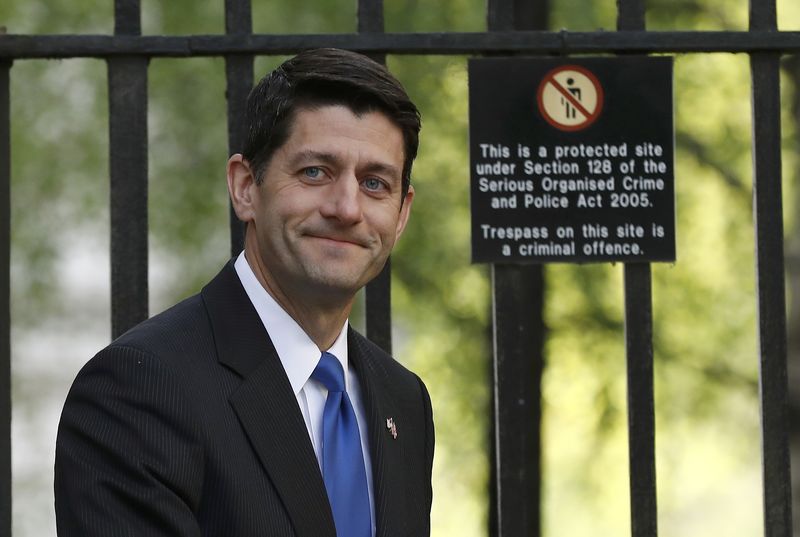By William James
LONDON (Reuters) - The United States must keep military options on the table when dealing with North Korea, but it does not want to use them unless it has to, U.S. House of Representatives Speaker Paul Ryan said during a visit to Britain on Wednesday.
U.S. President Donald Trump has taken a hard line with North Korean leader Kim Jong Un, who has rebuffed admonitions from China and proceeded with nuclear and missile programmes seen by Washington and others as a direct threat.
"Allowing this dictator to have that kind of power is not something that civilised nations can allow to happen ... of course we don't want to have military options employed, but we must keep all options on the table," he said when asked if the U.S. administration would be willing to drop bombs on North Korea.
Ryan said he was encouraged by the results of efforts to work with China to reduce tensions, but that it was unacceptable North Korea might be able to strike allies with nuclear weapons.
In a wide ranging question and answer session at an event organised by the policy Exchange think tank, Ryan also said he wanted to "ratchet up" sanctions on Iran but believed a nuclear deal struck in 2015, and previously criticised by Trump, would remain in place.
"There are lots of things that Iran is doing outside of this deal: proliferation of terrorism, weapons, violating missile tests - those things we should apply sanctions to," he said.
The Trump administration said on Tuesday it was launching an inter-agency review of whether the lifting of sanctions against Iran was in the United States' national security interests, while acknowledging that Tehran was complying with a deal to rein in its nuclear programme.
Ryan was visiting Britain with a cross-party delegation of lawmakers as part of a trip to reassure European allies of U.S. commitment to the NATO military alliance.
He used his remarks to call on countries to meet the alliance's minimum defence spending requirement, and also singled out the international threat posed by Russia.
"Russia is determined to exploit weakness and opportunity wherever it may surface," he said, citing Moscow's involvement in supporting Syrian President Bashar al-Assad.
"As they expand, and seek to expand their sphere of influence, they are continuing to challenge the sovereignty of all our allies in eastern and central Europe."
He repeated U.S. concerns, denied by Moscow, that Russia had interfered in its 2016 election and said Russia was currently interfering in elections in Europe. He gave no further details.

"We've learned a thing or two about their tactics in America and we commit to sharing those lessons learned with our allies so that you can be better prepared," he said.